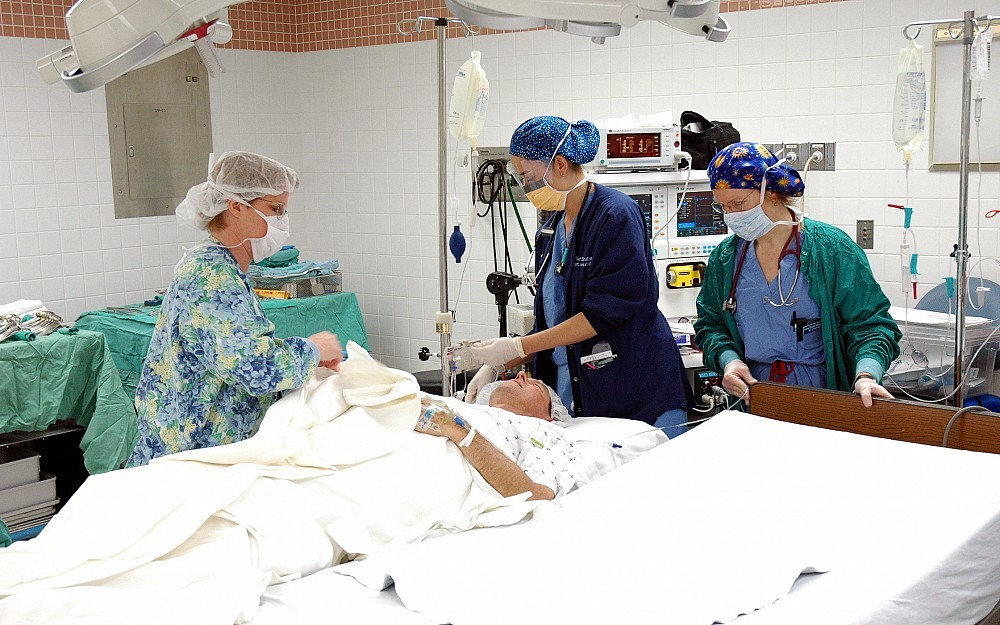
Health Care Workforce Headcount Shows Need for Better Data
CINCINNATIA first-of-its-kind comprehensive regional health care workforce profile commissioned by the University of Cincinnati (UC) Academic Health Center shows that there are gaps in available data, and exhibits the need for better data collection mechanisms in order to get a clear picture of the diversity and number of health care providers in our region.
- Download the full profile (PDF).
The profile, produced by HealthLandscape, LLC, was completed as part of the universitys involvement in Urban Universities for HEALTH (UU HEALTH), a national academic learning collaborative focused on investigating approaches to health care workforce development that lead to improved health outcomes and reduced disparities in local communities. UC became a member of UU HEALTH in 2012.
"As the areas only Academic Health Center, it is our obligation to have an understanding of the health care workforce needs so that we can educate and graduate the appropriate numbers and types of students to fill these important roles, says Greer Glazer, PhD, UC associate vice president for health affairs and dean, UC College of Nursing.
With this in mind, UC worked with HealthLandscape to gather headcounts and available demographic data for Hamilton County for advanced practice nurses, audiologists, community health workers, pharmacists, physical therapists, primary care physicians, registered dietitians, registered nurses, social workers and speech-language pathologists. Data was not available for all health care occupations.
Data for each occupation was drawn in late 2013 from a number of source files, including the American Medical Association Master File, the Bureau of Health Professions Area Resource File, the National Plan and Provider Enumeration System (also known as the National Provider Identifier file, or NPI), the American Community Survey Public Use Microdata Sample, and Ohio state licensure files.
Because the goals of each dataset vary, headcounts varied widely.
"This study was eye-opening for us, as it put down on paper the challenges we have to gathering the data we need to be able to predict future workforce needs, says Barbara Tobias, MD, Robert & Myfanwy Smith Endowed Professor, UC Department of Family and Community Medicine, and medical director of the Health Collaborative of Greater Cincinnati.
"For example, three different source files for primary care physicians showed variations in headcounts on the order of hundreds, says Tobias. "And depending upon where providers practice, versus where they live or bill, numbers can vary greatly.
Needs and Next Steps
Better data, they say, is sorely needed, and is particularly important when it comes to evaluating workforce diversity.
"Research has shown a direct link between a shortage of underrepresented health care providers and poorer health outcomes for diverse patients, says Glazer. "Without comprehensive data on area providers, its difficult to tell if we are experiencing shortages that would affect outcomes, but results of a recent survey suggest that could be the case.
Glazer and Tobias, working with UU HEALTH, recently developed questions for the Greater Cincinnati Community Health Status Survey (CHSS), of which results were released last month. The survey found that race and ethnicity were viewed by minorities as a barrier to finding trusted health care providers.
"To us, this [survey] indicates a need for health care providers from a more diverse array of racial and ethnic groups, as well as a need for more culturally competent providers, says Tobias.
Because of the limitations of the regional workforce profile, Glazer and Tobias say, next steps will be to find ways to better collect data in order to produce more comprehensive reports about the health care workforce in our region, with hopes that we can produce a model that other regions will follow.

Barbara Tobias, MD

Greer Glazer, PhD, dean of the UC College of Nursing, at her desk in Procter Hall.
Tags
Related Stories
Is ketamine the answer to treatment-resistant depression?
May 16, 2024
The University of Cincinnati's Stephen Rush joined WVXU's Cincinnati Edition to discuss the use of ketamine and esketamine to treat treatment-resistant depression.
Fellowship aimed at diversifying the nursing workforce...
May 15, 2024
To help prepare and expand a nursing workforce that is reflective of and responsive to an increasingly diverse patient population, UC College of Nursing launched its Cultivating Undergraduate Nursing Resilience and Equity (CURE) program in the fall of 2021.
UC study: Severe ischemic strokes rare in total patient...
May 15, 2024
The University of Cincinnati’s Yasmin Aziz will present research at the European Stroke Organisation Conference that found severe ischemic strokes with the most severe damage are rare in the total stroke patient population.
